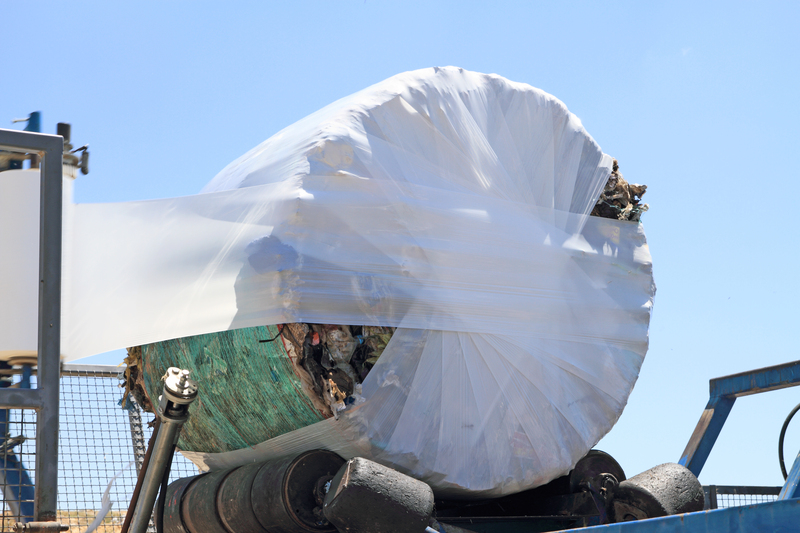Waste Not, Want Not: Home Waste Reduction Secrets
Reducing home waste isn't just a trend--it's a vital practice for minimizing your environmental footprint, saving money, and creating a more sustainable lifestyle. The age-old proverb "Waste Not, Want Not" has never been more relevant in our modern, convenience-driven society where the average person generates over four pounds of waste per day. In this comprehensive guide, you'll discover proven home waste reduction secrets you can easily implement, helping you embrace a greener, more conscious way of living.
Why Should We Reduce Household Waste?
Household waste is a significant contributor to environmental issues such as overflowing landfills, pollution, and greenhouse gas emissions. By making small changes at home and rethinking our habits, we can collectively make a positive impact on the planet and our wallets.
- Conserves natural resources: Cutting down on waste reduces the demand for new resources and raw materials.
- Lowers carbon footprint: Less waste means fewer emissions from landfill sites and waste transportation.
- Saves money: Using less, reusing more, and wasting less ultimately translates to cost savings.
- Supports local communities: Responsible consumption and waste reduction support local businesses and community programs.

Secrets to Reducing Household Waste: Practical Strategies
1. Conduct a Home Waste Audit
Before you can effectively reduce home waste, it's essential to know where you currently stand. Spend a week tracking everything your household throws away. Note patterns such as frequently discarded food items, packaging, or single-use products. This audit forms the foundation for targeted waste reduction strategies.
2. Embrace the Three R's: Reduce, Reuse, Recycle
Practicing the three R's--reduce, reuse, recycle--is one of the most effective ways to lower household waste:
- Reduce: Buy only what you need, avoid excess packaging, and choose items with a long lifespan.
- Reuse: Opt for reusable containers, bags, and water bottles. Repurpose jars, boxes, and clothing where possible.
- Recycle: Familiarize yourself with local recycling guidelines and separate your waste accordingly.
3. Smart Shopping Habits
The way we shop has a direct impact on the amount of waste generated in our homes. Here are some smart shopping secrets to cut waste at the source:
- Buy in bulk: Purchasing items in larger quantities minimizes packaging waste.
- Choose loose produce: Avoid pre-packaged fruits and vegetables; opt for loose items and bring your own produce bags.
- Support zero-waste stores: Shop at stores that offer package-free and refillable goods.
- Plan meals: Create weekly meal plans and shopping lists to avoid over-purchasing and food spoilage.
4. Food Waste Reduction Techniques
Food waste is a significant component of household waste. Try these effective methods for minimizing food waste at home:
- Store food properly: Understand the best ways to store fruits, vegetables, and leftovers to extend freshness.
- First in, first out: Use older food before newly purchased items to reduce spoilage.
- Repurpose leftovers: Get creative with leftovers by transforming them into new meals.
- Compost: Compost unavoidable food scraps such as peels, coffee grounds, and eggshells.
- Understand expiration labels: Most "best by" dates are suggestions for quality rather than safety. Use your senses to judge.
5. Composting: Nature's Recycling Secret
Composting transforms organic waste into nutrient-rich soil, perfect for your garden or houseplants. Whether your space is large or small, there's a composting solution for everyone:
- Backyard compost bin: Ideal for those with outdoor space.
- Vermicomposting: Use worms to compost indoors, even in apartments.
- Bokashi bins: Ferment food waste with beneficial microbes--even meats and dairy can be composted this way.
By composting kitchen and yard waste, you can reduce your household garbage by up to 30%!
Home Waste Minimization Secrets by Category
Kitchen Waste Reduction Secrets
- Switch to cloth towels: Replace paper towels with washable cloths.
- Avoid single-use items: Use glass or stainless steel containers, fabric napkins, and real plates instead of disposables.
- DIY cleaning sprays: Make your own cleaning products in reusable spray bottles.
- Freeze leftovers: Store excess food in the freezer for convenient meals later.
Bathroom Waste Reduction Tips
- Reusable wipes: Invest in washable cotton rounds and wipes instead of disposable ones.
- Bamboo toothbrushes: Switch to compostable bamboo toothbrushes.
- Bulk-buy toiletries: Purchase shampoo, conditioner, and soap in bulk and refill containers.
- Razor alternatives: Use a safety razor with replaceable blades.
- Homemade toiletries: Make your own toothpaste, deodorant, or scrubs using simple ingredients.
Living Room & Office Waste Reduction
- Go paperless: Opt for digital bills and documents to avoid unnecessary paper waste.
- Eco-friendly decor: Upcycle furniture and source second-hand home accessories.
- Rechargeable batteries: Use rechargeable instead of disposable batteries.
- Organize a swap: Trade books, games, or gadgets with friends and family instead of buying new.
Laundry & Cleaning Waste Reduction
- Concentrated detergents: Choose products that require less packaging and last longer.
- Drying racks: Line dry clothes instead of using a dryer to preserve fabrics and save energy.
- Make your own cleaners: Vinegar, baking soda, and lemon juice can be used for almost any cleaning need.
Advanced Waste Reduction: Taking It to the Next Level
Low-Waste Lifestyle
If you're ready to go beyond basic waste reduction, consider adopting a zero-waste home philosophy. Start small by setting achievable goals, such as having one "waste-free" day per week, then scale up.
- Choose products with no packaging or compostable wrappers.
- Invest in quality over quantity: Buy durable goods that will last for years.
- Join zero-waste communities: Share tips and resources with like-minded individuals.
Repairs and Upcycling
Repair what you own before replacing it. Learn basic mending, sewing, and simple appliance fixes. Upcycle items to give them new life:
- Furniture upgrades: Paint, stain, or add new hardware.
- Old textiles: Turn worn towels into cleaning rags or pillowcases into cloth bags.
- Jar reuse: Use glass jars for pantry storage, crafts, or gifts.
Second-hand and Sharing Economy
Use and support the sharing economy:
- Borrow tools, equipment, or items used infrequently.
- Buy or sell in thrift stores, online marketplaces, or community groups.
- Host swap events with neighbors and friends.
Waste-Free Events and Celebrations
- Use reusable dishes and decorations for gatherings.
- Plan menus carefully to avoid food waste.
- Encourage guests to bring containers for leftovers.
- Donate excess food to local charities or food banks.
Waste Reduction for Families and Kids
Involving your family in household waste reduction can instill lifelong eco-friendly habits in children. Make waste reduction a fun educational activity:
- Start a compost bin together and assign responsibilities.
- Read books or watch documentaries on sustainability.
- Organize a family "zero-waste challenge."
- Create crafts from recyclables and upcycled materials.
Common Home Waste Reduction Questions
How can I reduce packaging waste from online shopping?
- Request minimal packaging when placing online orders, if the option is available.
- Recycle cardboard boxes and reuse packing materials.
- Choose companies that use eco-friendly packaging and consolidate shipping.
What items are commonly recyclable but often overlooked?
- Plastic bottle caps
- Aluminum foil (clean)
- Glass jars
- Toilet paper tubes
- Paperback books (check local guidelines)
How do I encourage my household to waste less?
- Lead by example through consistent habits.
- Set shared goals and reward progress.
- Educate family members, particularly children, about the benefits.

Small Changes, Big Impact: Waste Reduction at Home
Even the smallest waste-reducing actions add up over time. Remember, waste reduction is a journey--not a destination. Celebrate your progress and encourage others around you to join the movement by sharing your successes, discussing strategies, or even starting a local sustainability initiative.
To summarize, here's a quick checklist to kickstart your household waste reduction journey:
- Audit your waste habits.
- Minimize single-use products.
- Embrace composting and recycling.
- Prioritize reusable, durable goods.
- Shop consciously and plan meals.
- Engage your family and community.
Conclusion: The Secrets to a Waste-Free Home
Home waste reduction secrets can be as simple as changing a few purchasing habits or as ambitious as adopting a zero-waste lifestyle. Every effort, big or small, matters when it comes to conserving resources, saving money, and safeguarding our environment. Start today with just one change and see how easy it can be to go from "waste not, want not" to a minimal-waste household.
What's your favorite waste reduction tip? Share your thoughts and ideas in the comments--your experience could help inspire others to join the movement!